Filter by
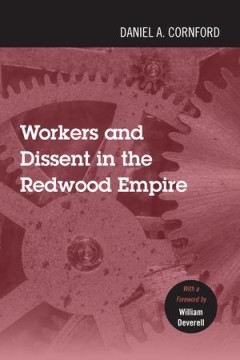
Workers and Dissent in the Redwood Empire
In the history business, calling a work a classic can be a double-edged sword. Daniel Cornford’s book is a classic in the best way. His analysis of California’s redwood forests and those who turned them into lumber is a finely wrought piece of historical scholarship Published in 1987 by Temple University Press, Workers and Dissent in the Redwood Empire focuses attention on a place that need…
- Edition
- -
- ISBN/ISSN
- -
- Collation
- -
- Series Title
- -
- Call Number
- 650
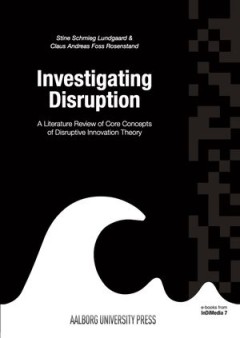
Investigating Disruption : A Literature Review of Core Concepts of Disruptive…
When companies fail, several reasons (some more likely than others) can be turned to in order to explain why. Managers look for these typically interrelated networks of reasons in attempts to secure themselves and future companies from the same failure happening again. This necessitates knowledge, which, based on past experience, provides forecasts and is operational at an early stage. One reas…
- Edition
- -
- ISBN/ISSN
- 9788771126839
- Collation
- -
- Series Title
- -
- Call Number
- 650
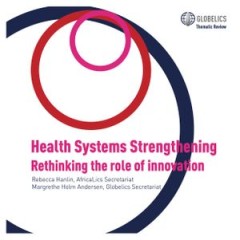
Health Systems Strengthening : Rethinking the role of innovation
The Global Network for the Economics of Learning, Innovation, and Competence Building Systems (Globelics) is an open and diverse community of scholars working on innovation and competence building in the context of economic development. The major purpose of the network is to contribute to building capacity and create a forum for exchange worldwide in the innovation and development research fiel…
- Edition
- -
- ISBN/ISSN
- 9788771125849
- Collation
- -
- Series Title
- -
- Call Number
- 650
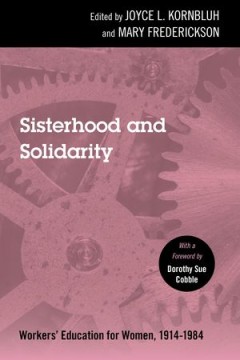
Sisterhood and Solidarity : Workers' Education for Women, 1914-1984
Sisterhood and Solidarity was one of the first volumes, and remains one of the few, to call attention to the importance of workers’ education for women. The ten original essays, written by some of the best known labor and working-class history scholars of the time, analyze an educational experiment in which industrial, clerical, and service workers participated with educators, feminists, and …
- Edition
- -
- ISBN/ISSN
- 9781439917923
- Collation
- -
- Series Title
- -
- Call Number
- 650
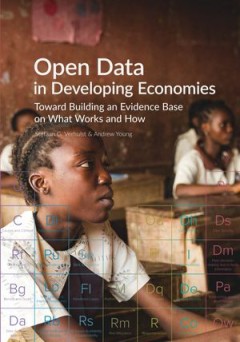
Open Data in Developing Economies : Toward Building an Evidence Base on What …
Recent years have witnessed considerable speculation about the potential of open data to bring about wide-scale transformation. The bulk of existing evidence about the impact of open data, however, focuses on high-income countries. Much less is known about open data’s role and value in low- and middle-income countries, and more generally about its possible contributions to economic and social…
- Edition
- -
- ISBN/ISSN
- 9781928331599
- Collation
- -
- Series Title
- -
- Call Number
- 650
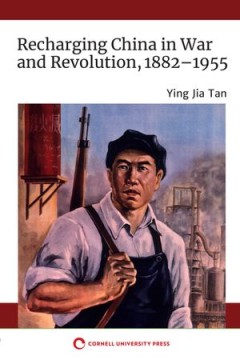
Recharging China in War and Revolution, 1882–1955
In Recharging China in War and Revolution, 1882–1955, Ying Jia Tan explores the fascinating politics of Chinese power consumption as electrical industries developed during seven decades of revolution and warfare. Tan traces this history from the textile-factory power shortages of the late Qing, through the struggle over China's electrical industries during its civil war, to the 1937 Japane…
- Edition
- -
- ISBN/ISSN
- -
- Collation
- -
- Series Title
- -
- Call Number
- 650
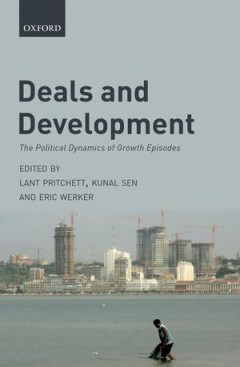
Deals and Development
International financial crises have plagued the world in recent decades, including the Latin American debt crisis of the 1980s, the East Asian crisis of the late twentieth century, and the global financial crisis of 2007-09. One of the basic problems faced during these crises is the lack of adequate preventive mechanisms, as well as insufficient instruments to finance countries in crisis and to…
- Edition
- -
- ISBN/ISSN
- 9780198801641
- Collation
- -
- Series Title
- -
- Call Number
- 650
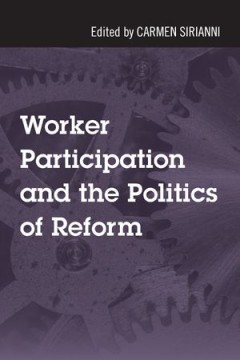
Worker Participation and the Politics of Reform
This collection examines not only the enormous diversity of imeanings and forms of worker participation in the contemporary period but also its global character. The chapters cover Western and Eastern Europe, the United States and Japan, China, and the Third World. Each of them is informed in some way by the conviction that worker participation is an eminently political phenomenon— that it is…
- Edition
- -
- ISBN/ISSN
- -
- Collation
- -
- Series Title
- -
- Call Number
- 650
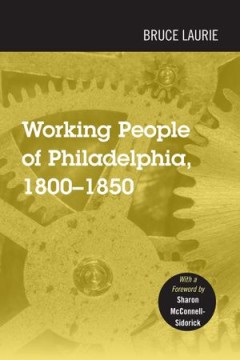
Working People of Philadelphia, 1800-1850
The study of the history of working-class life in America underwent a major transformation in the 1970s. Moving beyond labor history’s earlier institutional paradigm, with its focus on union structures and leaders, the New Labor History expanded its reach into new territories of working-class culture and community, to the point that the field today is generally referred to as Labor and Workin…
- Edition
- -
- ISBN/ISSN
- 9781439917947
- Collation
- -
- Series Title
- -
- Call Number
- 650
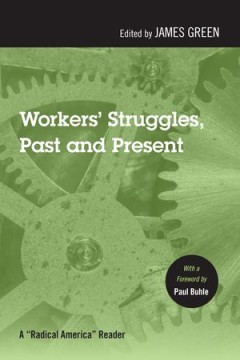
Workers' Struggles, Past and Present : A "Radical America" Reader
Selected from the pages of Radical America, these articles are a rare combination of labor and social history and contemporary studies of labor movement politics and workplace struggles.
- Edition
- -
- ISBN/ISSN
- -
- Collation
- -
- Series Title
- -
- Call Number
- 650
 Computer Science, Information & General Works
Computer Science, Information & General Works  Philosophy & Psychology
Philosophy & Psychology  Religion
Religion  Social Sciences
Social Sciences  Language
Language  Pure Science
Pure Science  Applied Sciences
Applied Sciences  Art & Recreation
Art & Recreation  Literature
Literature  History & Geography
History & Geography